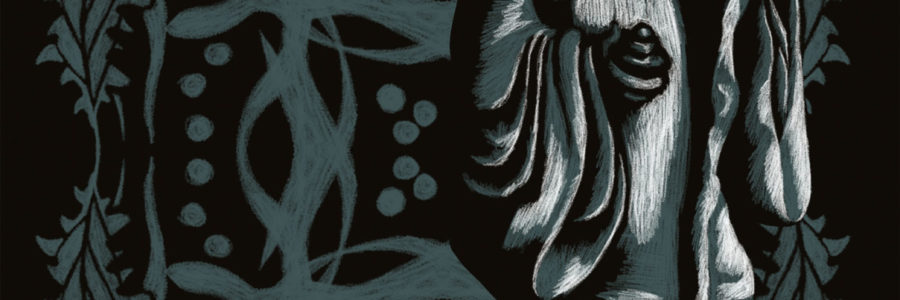
Asian Mythologies and Legends
From 2020 to 2022, I produced a collection of dreamlike stories, in the style of Dada and surrealist poets. Each was associated with a mythological or legendary character, which I then illustrated.
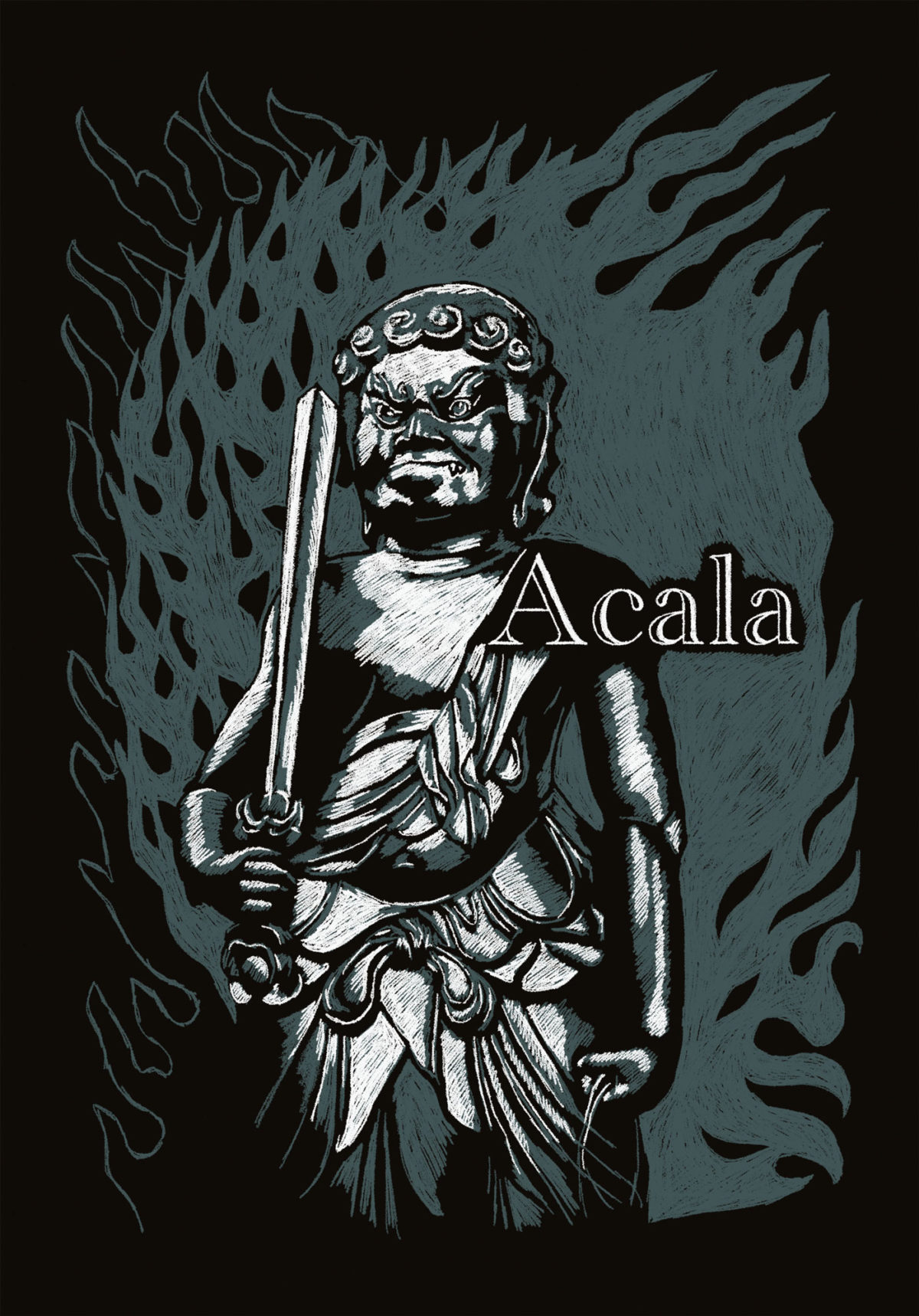
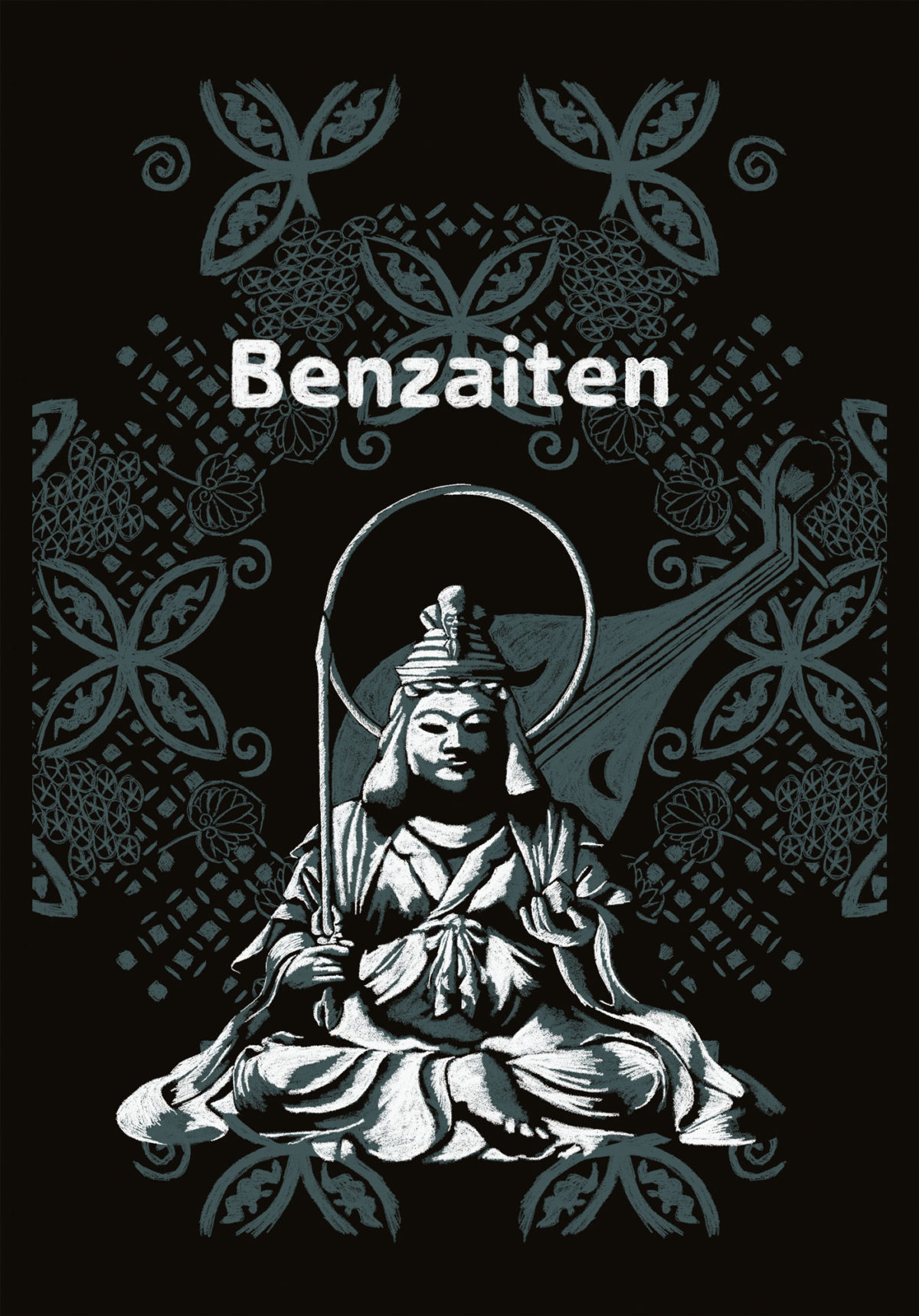
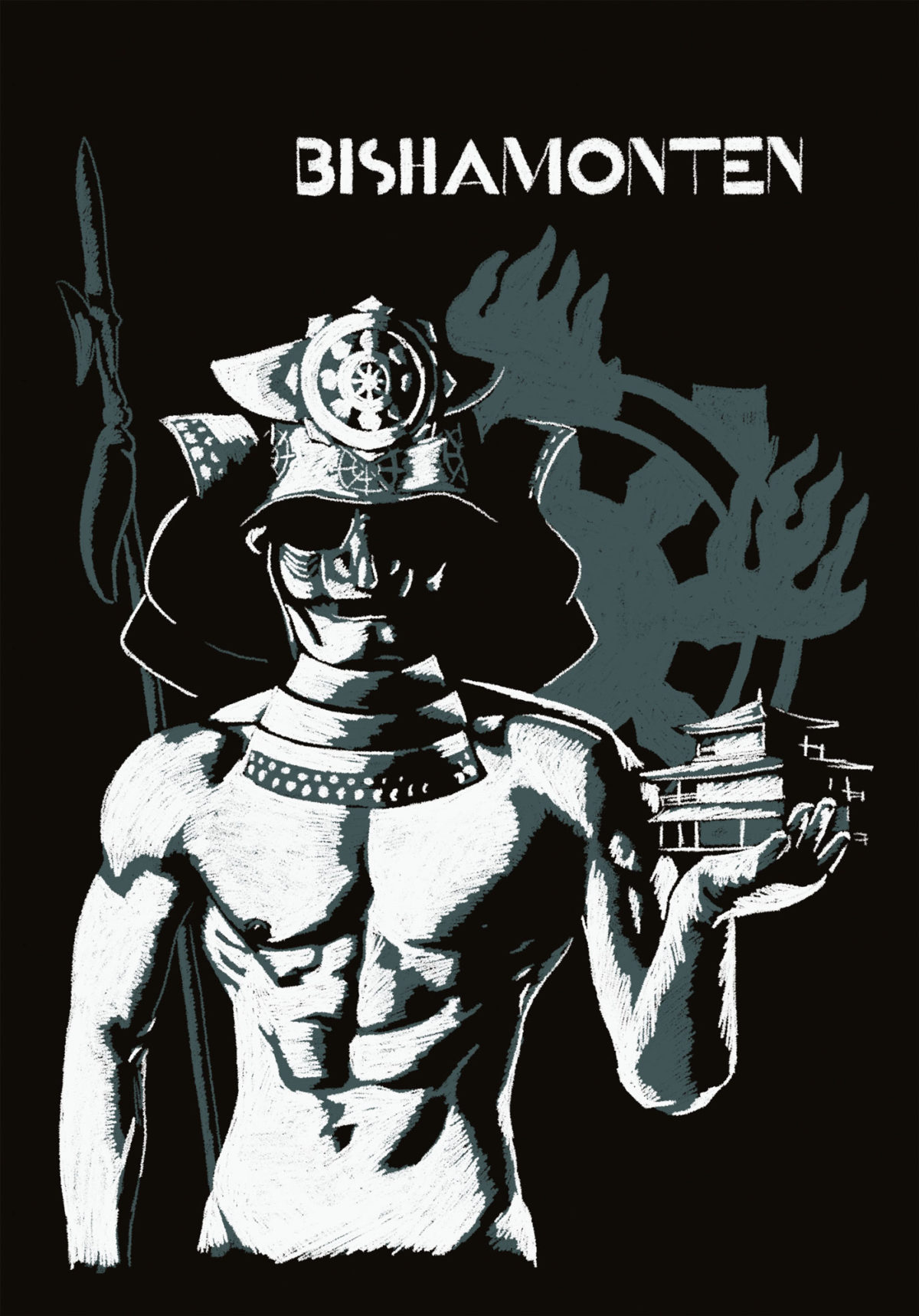
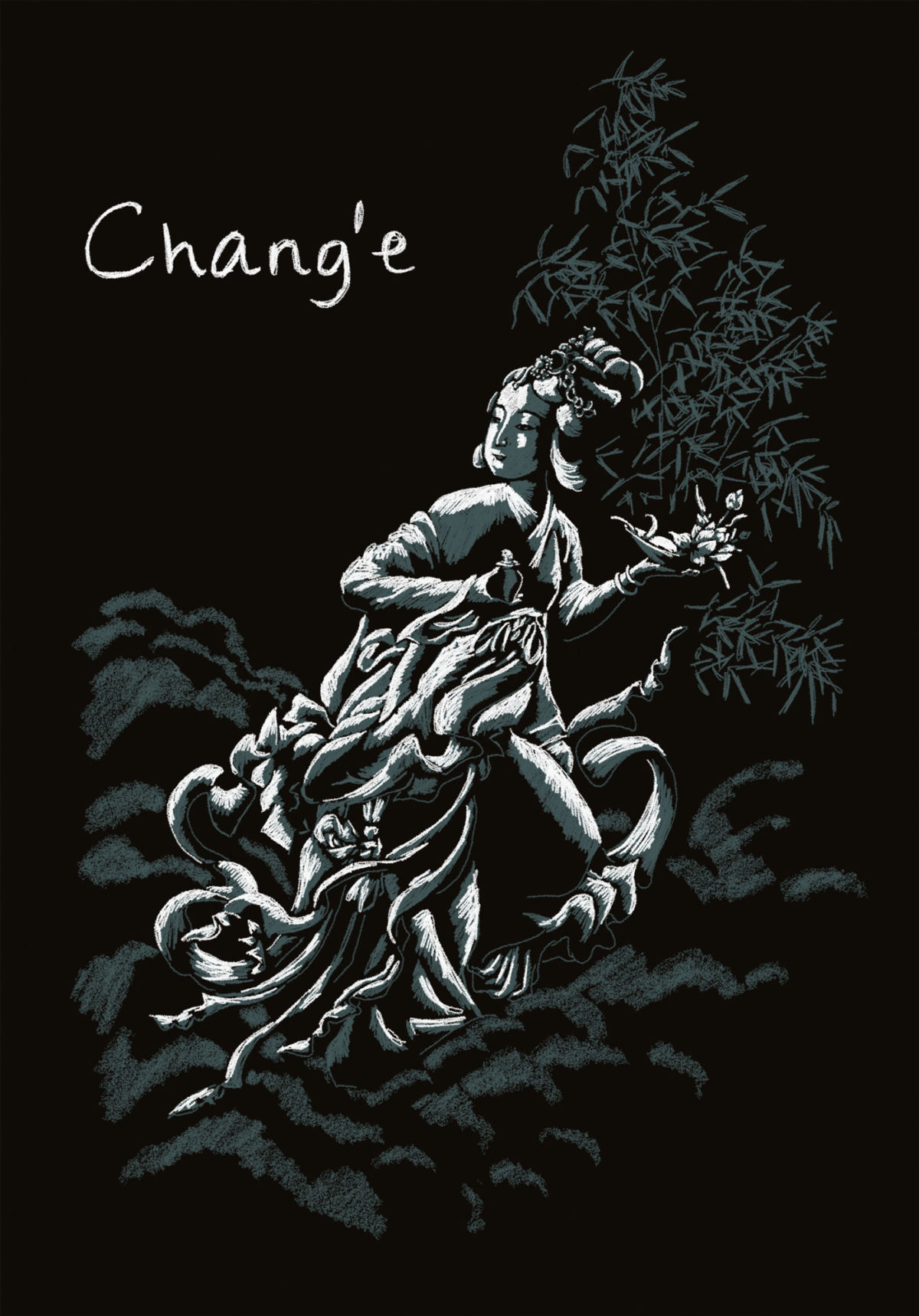
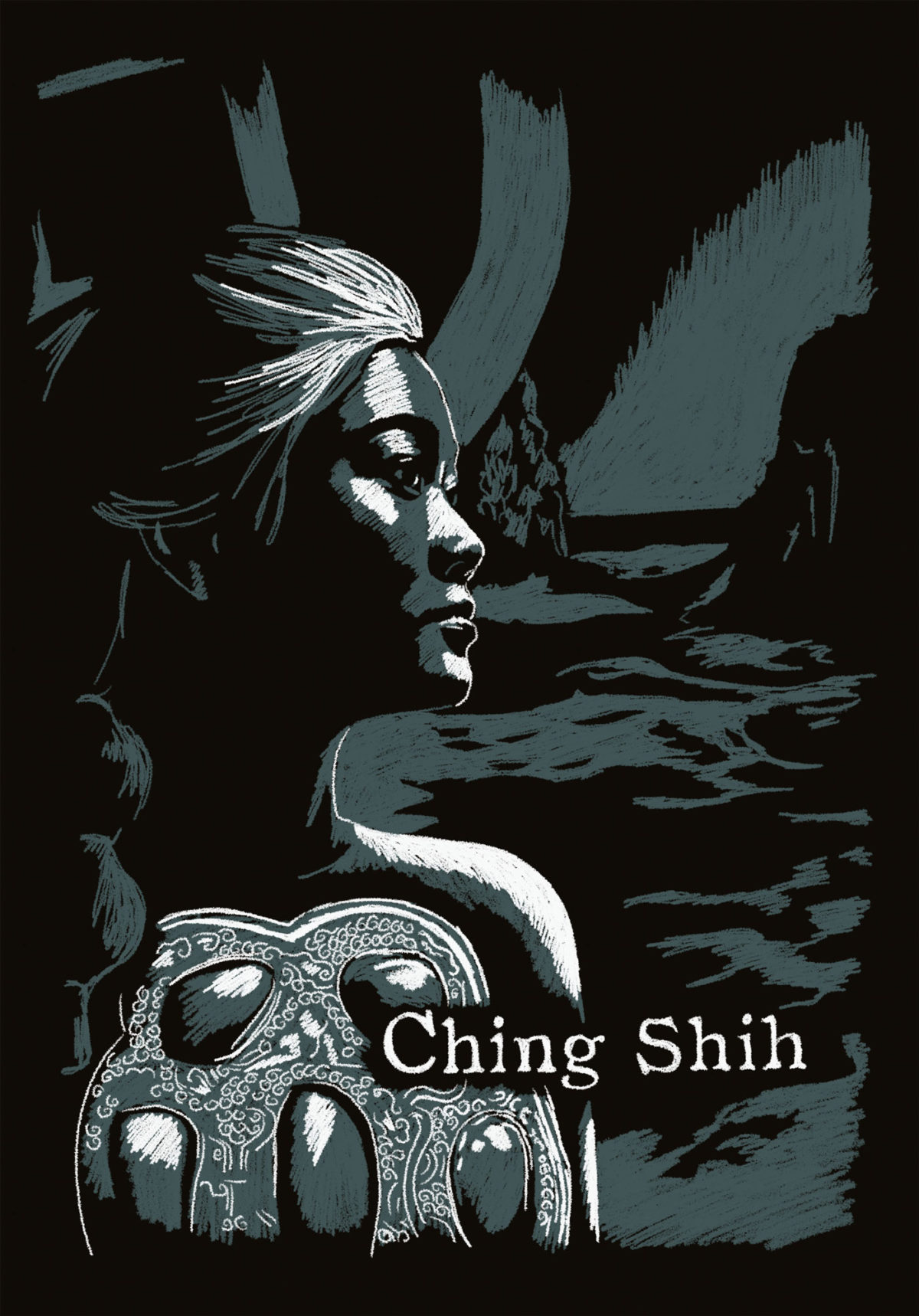
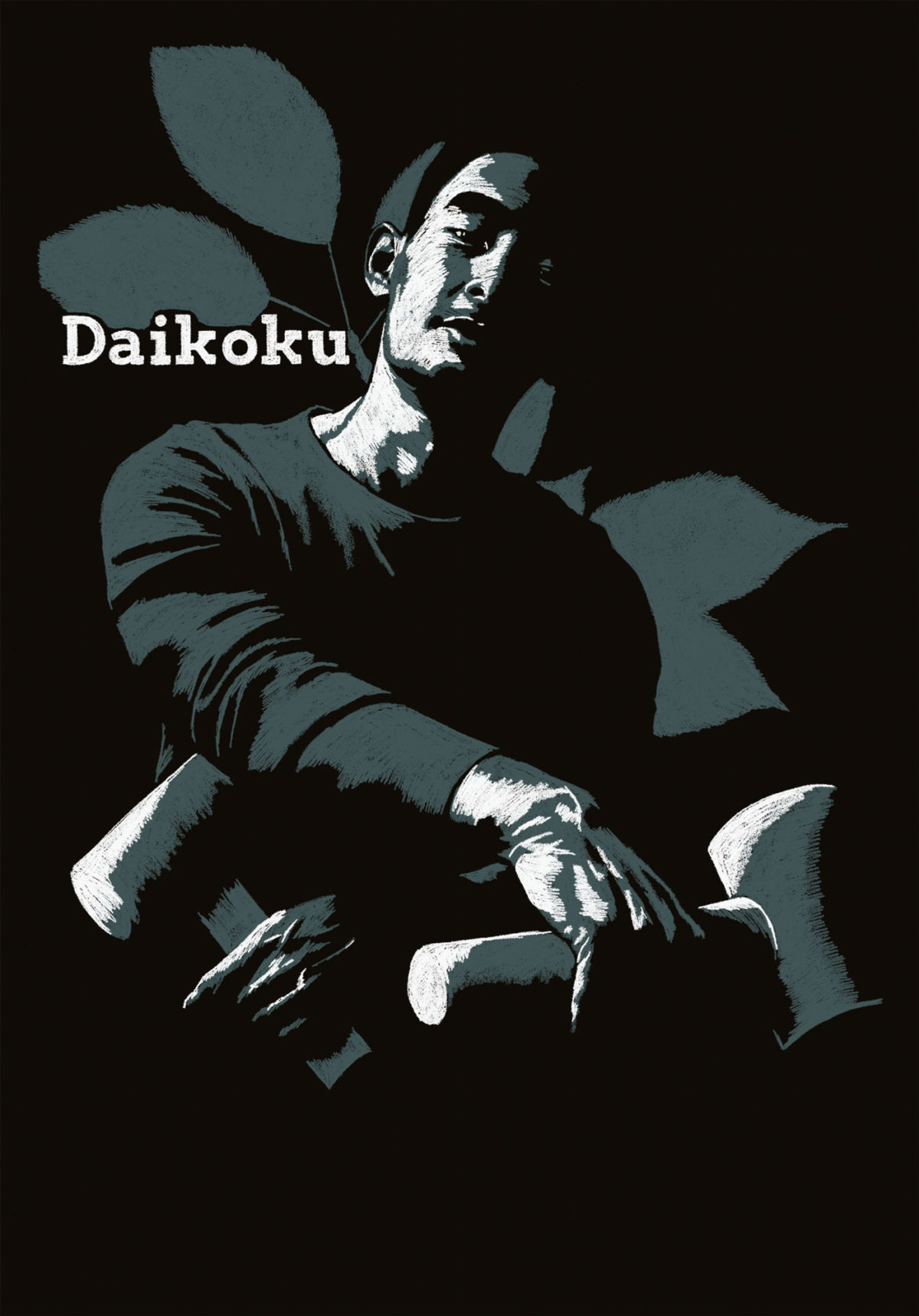
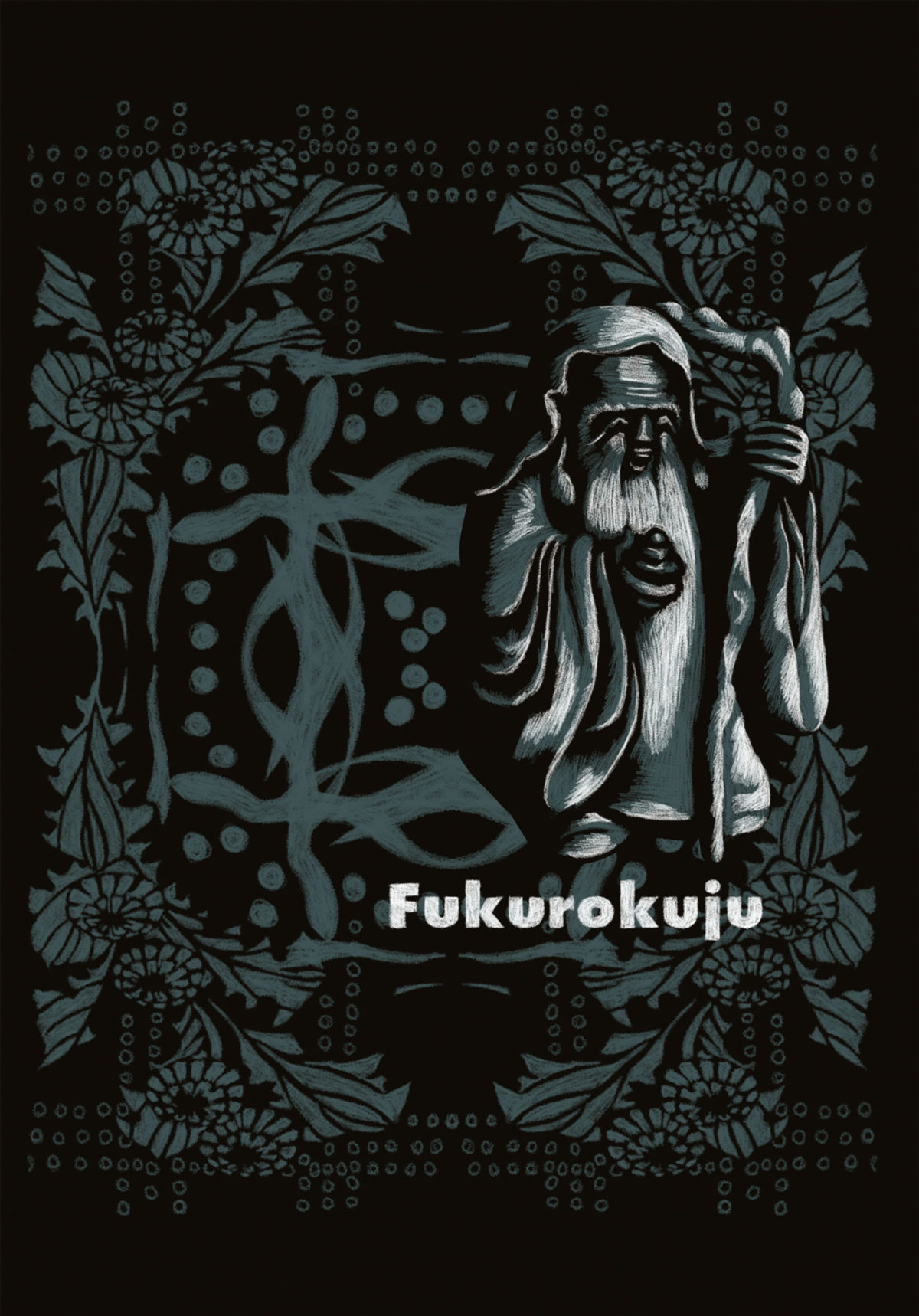
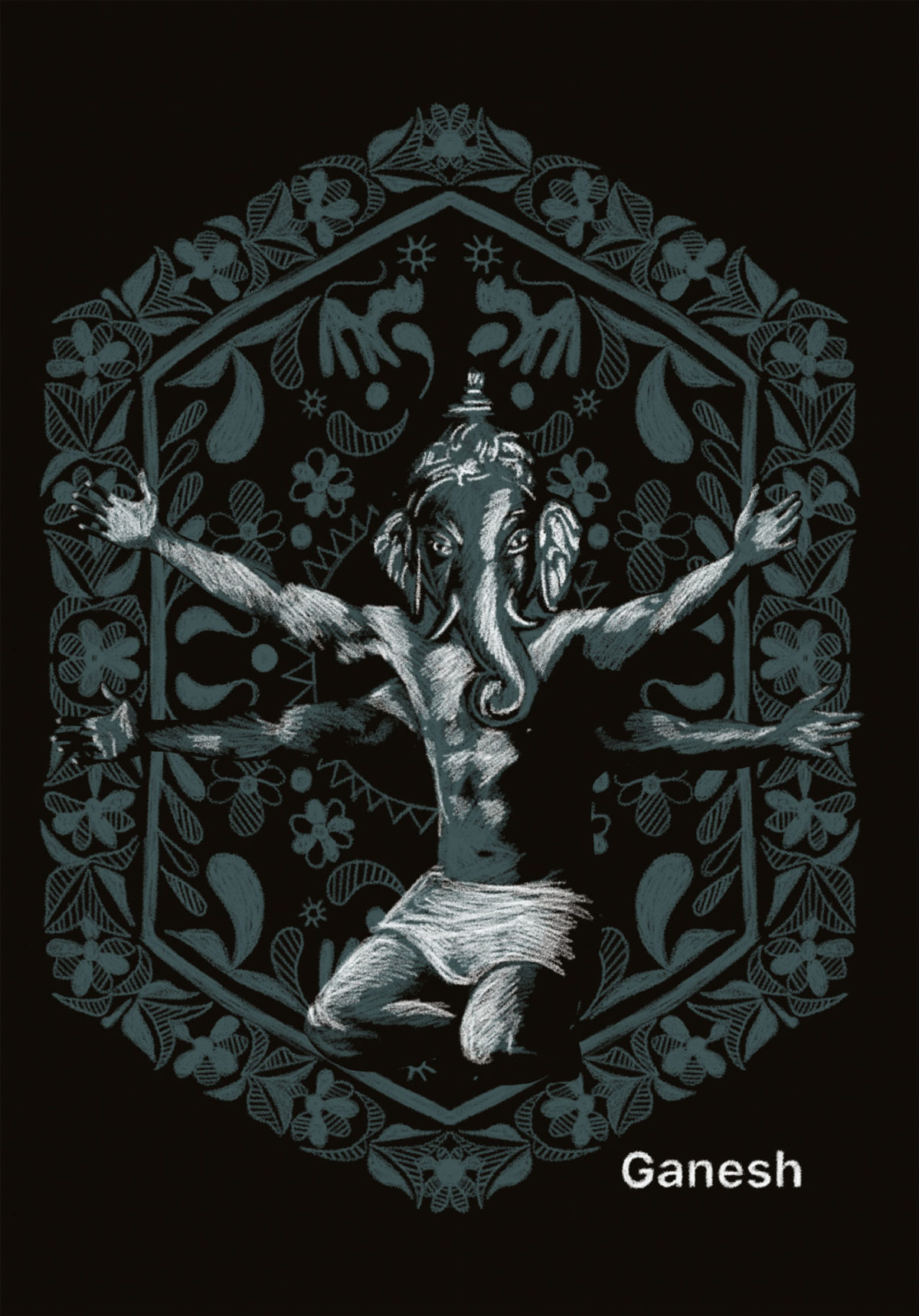
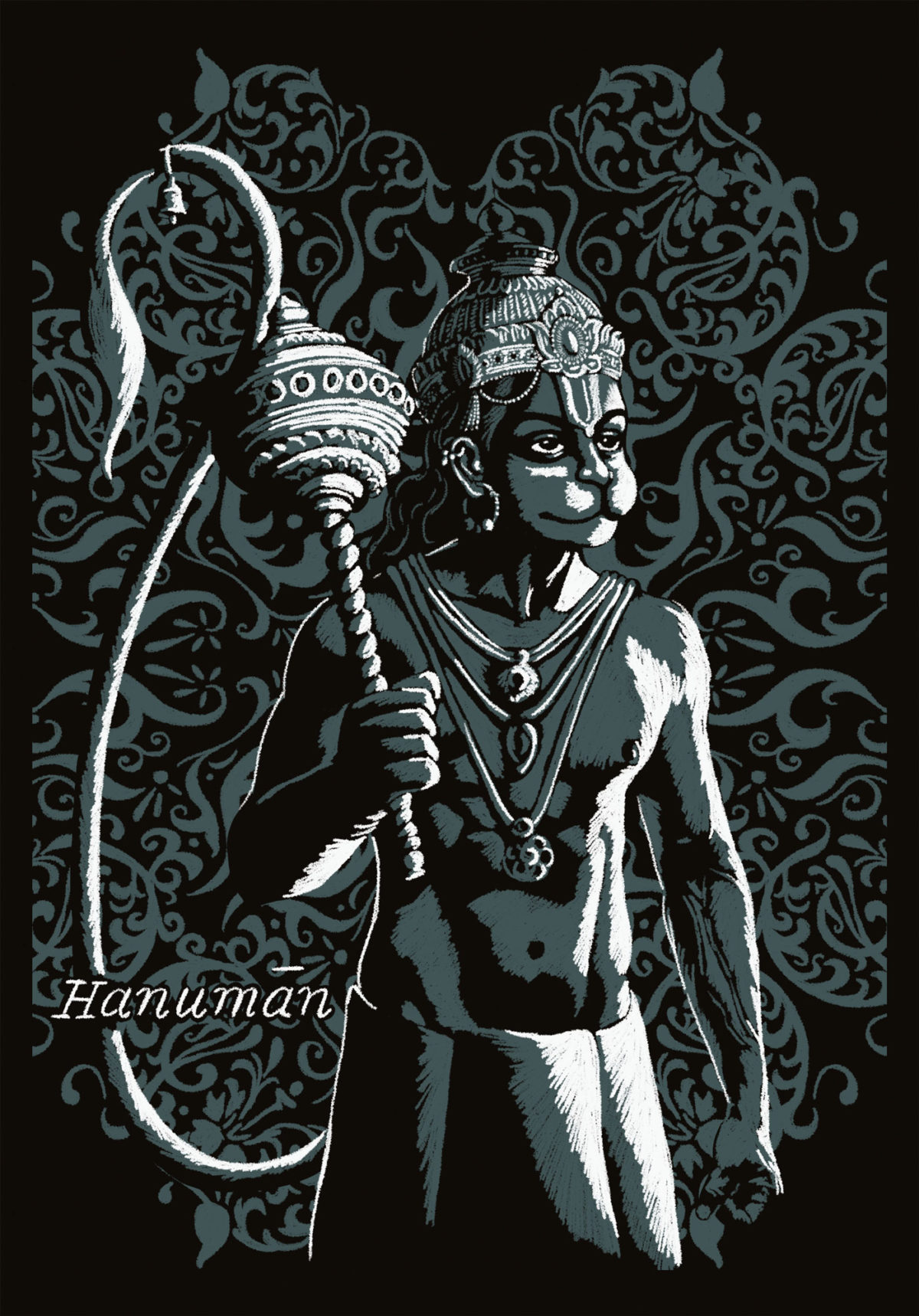
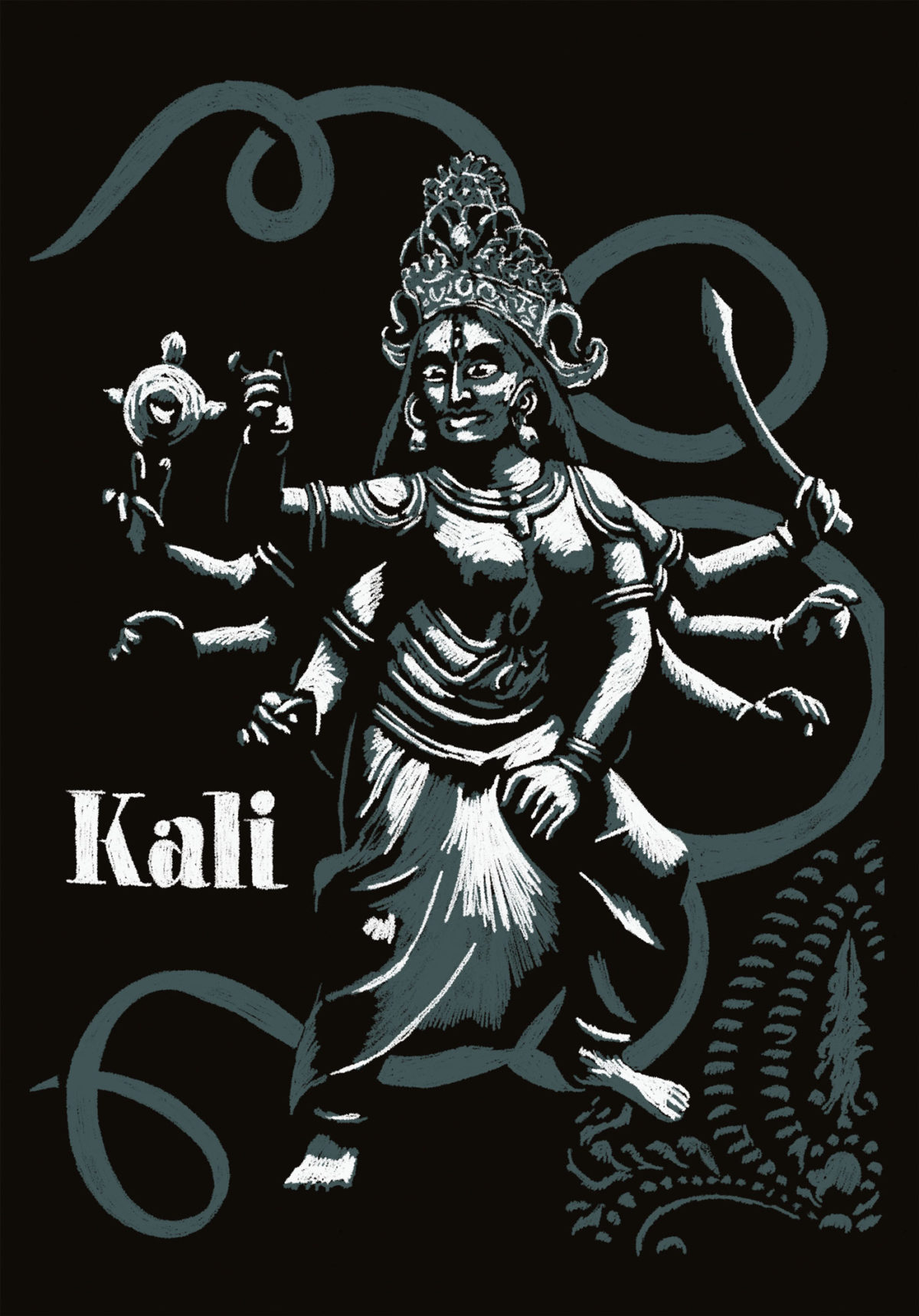
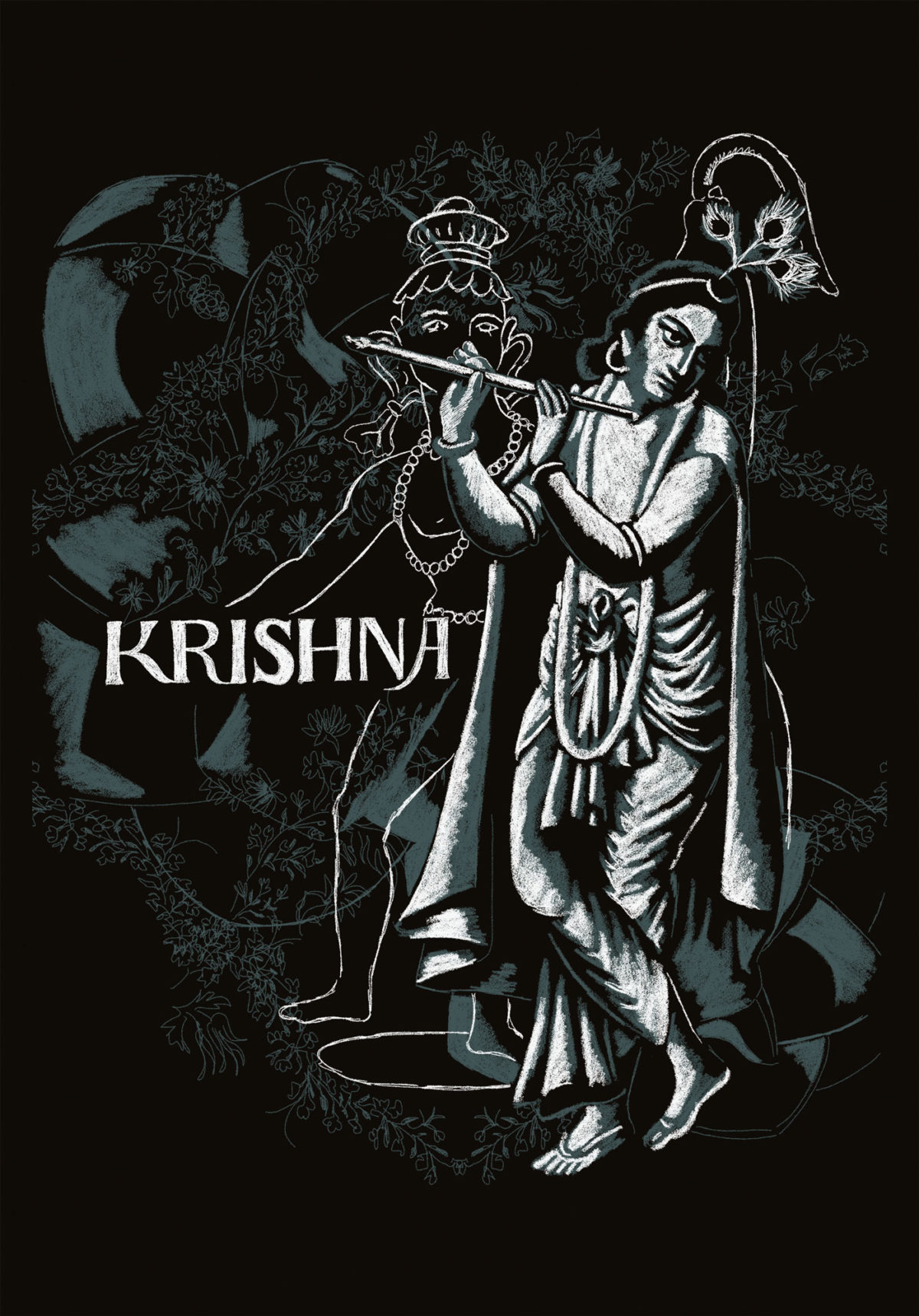
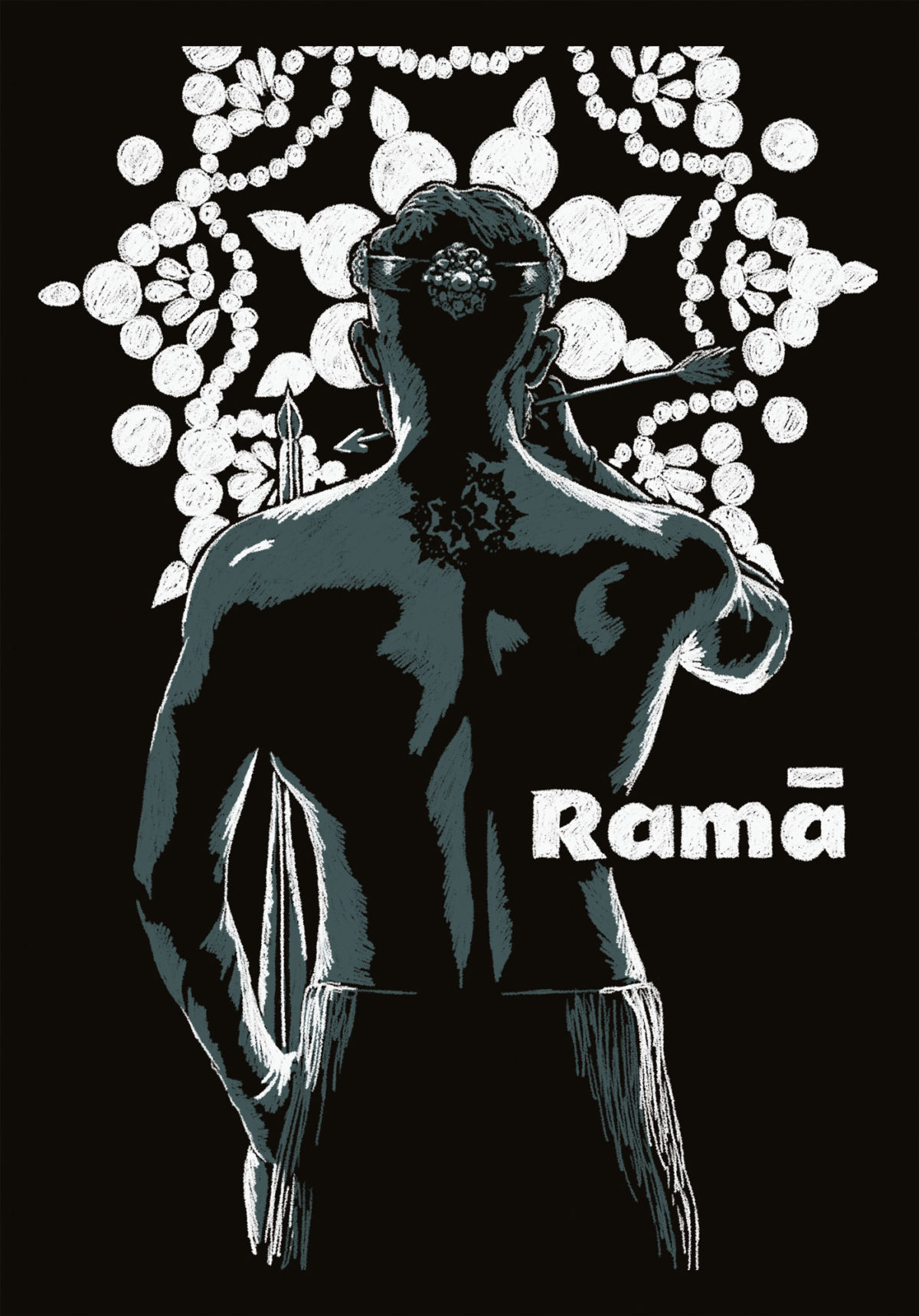
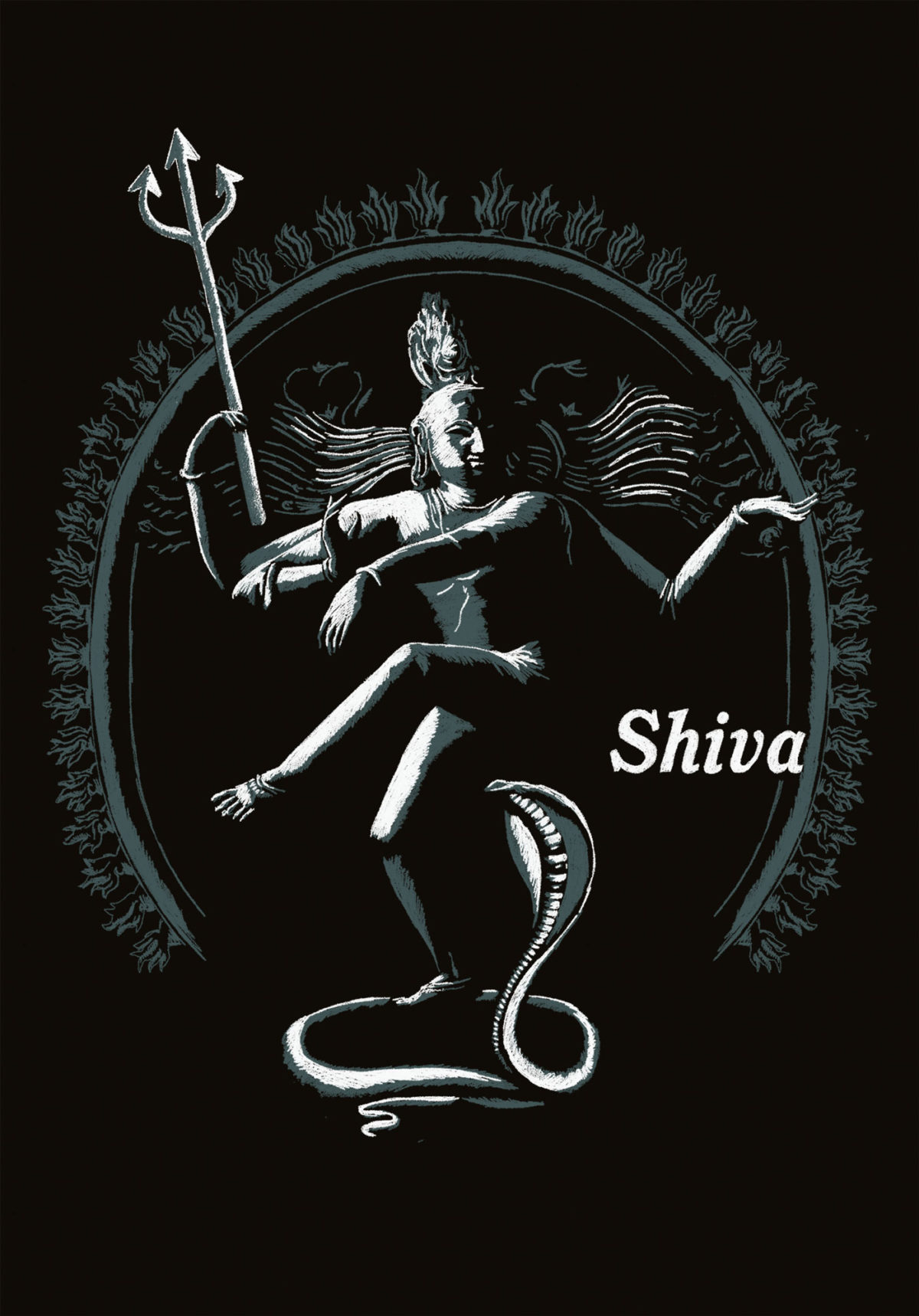
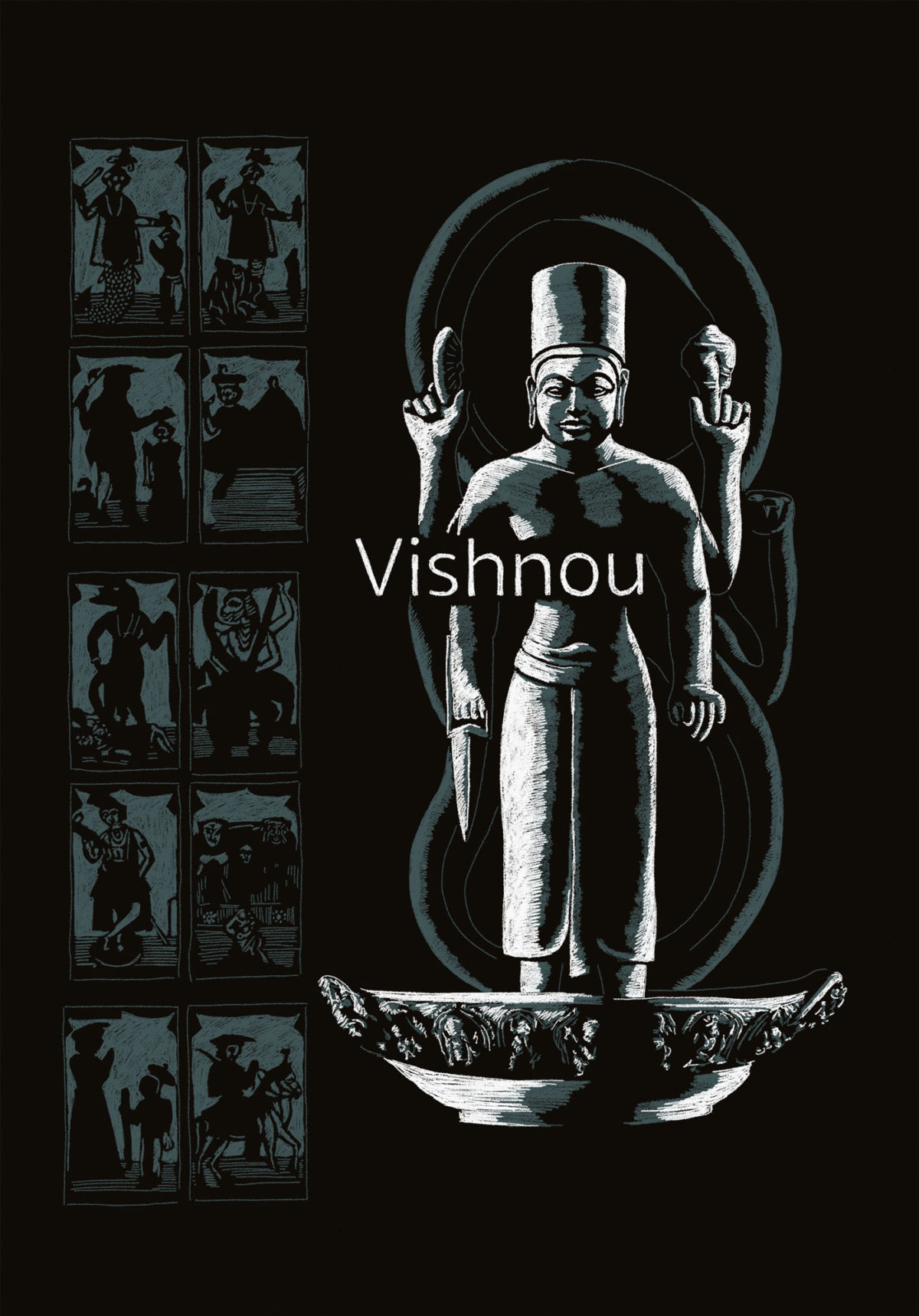
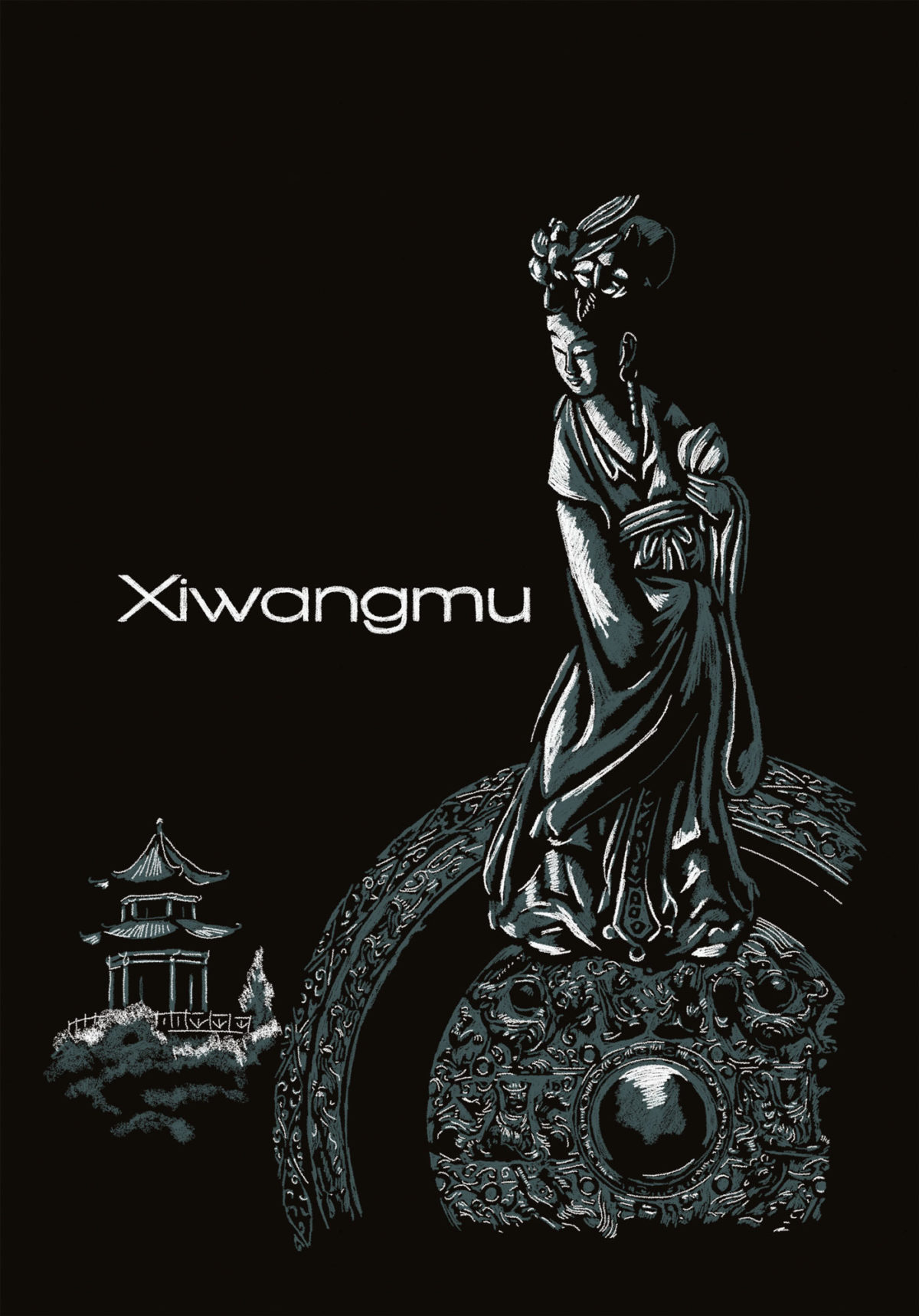
- Acala is a Buddhist deity, he is associated with fire and anger.
- Benzaiten is a Japanese and Hindu Buddhist deity of knowledge, art and beauty, eloquence, music, literature, arts and sciences, virtue and wisdom, prosperity and longevity.
- Bi-shamon-ten is a Buddhist deity, considered in Japan as the deity of warriors.
- Chang’e is considered by the Tao as the goddess of the Moon.
- Ching Shih is a legendary Chinese female pirate, having lived from 1775 to 1844.
- Daikoku is the Japanese deity of wealth, commerce and trade.
- Fukurokuju is the Japanese deity of wealth, virility, longevity and wisdom.
- Ganesh is the Hindu god of wisdom, intelligence, education and prudence, patron of schools and knowledge workers.
- Hanuman is in Hinduism is the hero of the Rāmāyaṇa, an epic which recounts the journey of Râma, the legendary founding king of India. In modern Hinduism he is revered as the protector of villages.
- Kali is, in Hinduism, the goddess of preservation, transformation and destruction.
- Krishna is a central deity in Hinduism. In most Hindu traditions, he is the eighth avatar (incarnation) of Vishnu.
- Rama is a real or mythical king of ancient India, whose life and heroic exploits are recorded in the Rāmāyaṇa, one of the two major epics of India, written in Sanskrit.
- Shiva is considered in five major functions: he is the creator, the preserver, the transformer, the concealer and the revealer (by blessing).
- Vishnou is with Shiva and Brahma one of the three main gods of Hinduism, he is considered as the creative part of this trinity.
- Xiwangmu is a character from ancient Chinese mythology who became a Taoist deity of immortality during the Han dynasty.